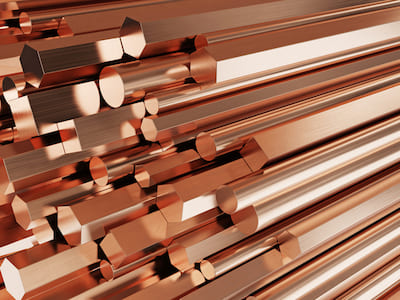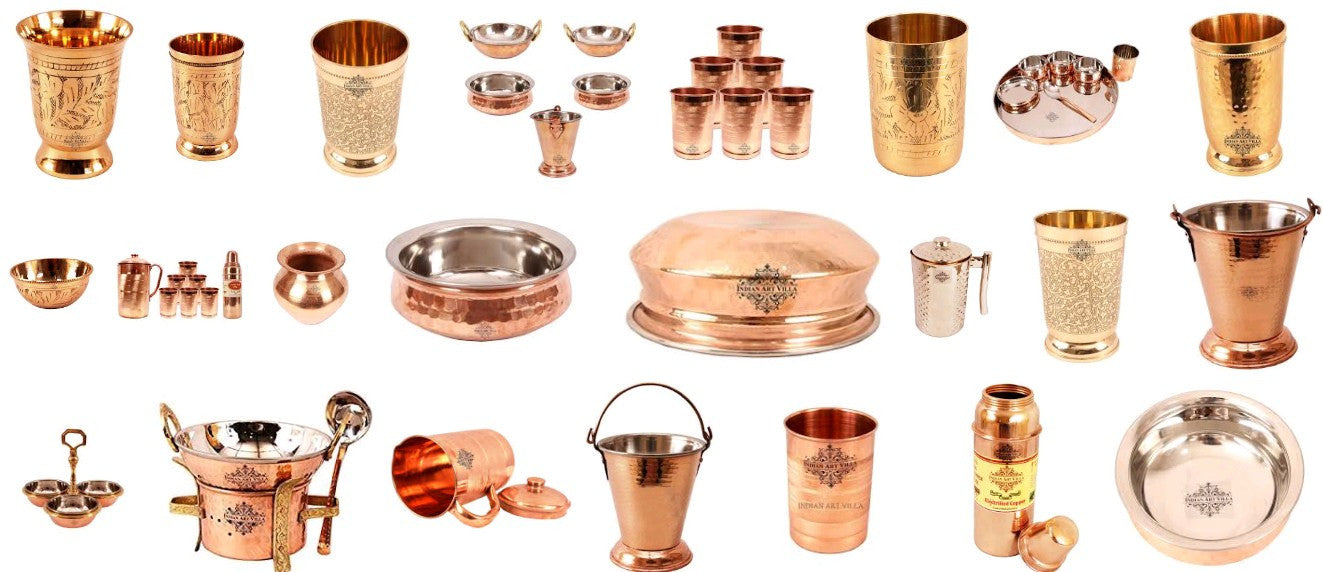Enhancing Your Kitchen with Costs Copper Products: Tips and Best Practices
Enhancing Your Kitchen with Costs Copper Products: Tips and Best Practices
Blog Article
Checking Out the Diverse Applications of Copper Products in Modern Industries
From enhancing the effectiveness of electric systems to playing a crucial function in sustainable power technologies, the flexibility of copper is evident. As industries progressively focus on technology and sustainability, the varied applications of copper call for a closer exam, particularly regarding their potential effect on future technical innovations and ecological practices.
Electrical Applications of Copper
Copper is a vital material in the electrical market, making up roughly 60% of the overall demand for non-ferrous metals around the world - Copper Products. Its exceptional electrical conductivity, which is almost twice that of aluminum, makes it the recommended option for a large range of electrical applications. From electrical wiring systems in business and residential structures to high-voltage power transmission lines, copper makes certain efficiency and reliability in electrical power delivery
Along with circuitry, copper is indispensable to the manufacturing of electrical elements such as motors, generators, and transformers. These elements take advantage of copper's thermal conductivity and malleability, important for heat dissipation and effective performance. In addition, copper's resistance to deterioration improves the lifespan and sturdiness of electrical systems, making it a cost-effective remedy in the long term.
The development of renewable resource resources, such as solar and wind power, has even more increased the need for copper in electric applications. As sectors change in the direction of sustainable energy options, copper's function comes to be much more crucial. In general, the adaptability and efficiency features of copper strengthen its standing as a keystone product within the electric field, driving technology and performance throughout different applications.
Pipes and Piping Solutions
In modern-day pipes systems, the option of materials significantly affects both performance and longevity. Copper has become a favored option due to its one-of-a-kind residential or commercial properties, consisting of deterioration resistance and antimicrobial features. These features make sure that copper piping stays risk-free and durable for transporting drinkable water, an essential factor to consider in property and commercial applications.
Among the key advantages of copper in pipes is its capability to withstand high temperature levels and stress, making it suitable for a selection of applications, from warm water systems to home heating and cooling networks. Furthermore, copper's versatility enables much easier installation in complex piping layouts, lowering the danger of leakages and failures.
One more noteworthy advantage is copper's long life expectancy, often exceeding 50 years with correct maintenance. This durability not only reduces substitute costs however also contributes to lasting methods by minimizing waste. Additionally, copper's recyclability aligns with modern-day ecological standards, advertising a circular economic situation within the pipes sector.
Copper in Renewable Energy
The convenience of copper expands past pipes applications, playing an essential role in the sustainable power industry. Its exceptional electric and thermal conductivity makes it an essential material in the manufacturing and circulation of renewable resource resources, particularly solar and wind power. In photovoltaic panels, copper is made use of in photovoltaic or pv cells and circuitry, facilitating effective energy conversion and transmission. Its resistance to corrosion ensures long-lasting performance, which is crucial for maximizing power result with time.

In addition, as the global need for electrical vehicles (EVs) increases, copper's function in battery systems and charging framework comes to be even more significant. The material's capability to conduct electrical power efficiently is essential to the performance of EV batteries, improving variety and charging speed.
Copper's Function in Electronics
Electronic have a peek at this website devices producing depends heavily on copper's extraordinary buildings, specifically its high electric conductivity and thermal effectiveness. These features make copper an ideal option view it for a wide variety of digital components, consisting of ports, circuit card, and wiring. The metal's capacity to successfully send electric signals makes sure minimal power loss, which is vital in high-performance electronic tools.
Additionally, copper's thermal conductivity plays a significant duty in warm dissipation, safeguarding sensitive parts from overheating. This is particularly essential in modern-day electronics, where small designs cause enhanced warmth generation. Copper is additionally preferred for its pliability and ductility, allowing it to be quickly shaped into elaborate styles that satisfy the needs of advanced digital applications.
With the surge of customer electronics, telecoms, and electric automobiles, the need for copper in the electronic devices sector continues to grow. Hence, copper remains a foundation material in the ever-expanding area of electronic devices.
Innovative Utilizes in Production

One remarkable application is in additive production, where copper-based materials are utilized in 3D printing procedures. This allows for the development of light-weight components and complicated geometries, specifically in the aerospace and automobile markets. In addition, copper's thermal conductivity makes it an optimal option for warmth exchangers, boosting efficiency in industrial air conditioning systems.
Additionally, the rise of wise production has actually seen the incorporation of copper in IoT devices, where its conductive capabilities sustain innovative sensing technologies. In the realm of sustainable power, copper is critical in the production of solar panels and wind turbines, assisting in extra reliable power conversion and distribution.
As markets aim for sustainability and advancement, copper's convenience and efficiency remain to place it as a critical material, driving advancements in manufacturing and adding check my site to the growth of smarter, a lot more reliable items.
Verdict
The indispensable duty of copper in eco-friendly energy and its essential feature in electronics emphasize its importance in advancing lasting techniques. Jointly, these applications illustrate copper's crucial payment to technological progress and commercial performance in contemporary culture.
From improving the performance of electric systems to playing an important role in eco-friendly power modern technologies, the versatility of copper is apparent. As industries progressively prioritize innovation and sustainability, the diverse applications of copper call for a closer evaluation, especially concerning their possible impact on future technical developments and ecological methods.
The development of eco-friendly energy sources, such as solar and wind power, has further raised the need for copper in electrical applications. On the whole, the flexibility and efficiency attributes of copper solidify its condition as a keystone material within the electric sector, driving advancement and effectiveness across different applications.
The versatility of copper expands beyond plumbing applications, playing an essential role in the sustainable energy market.
Report this page